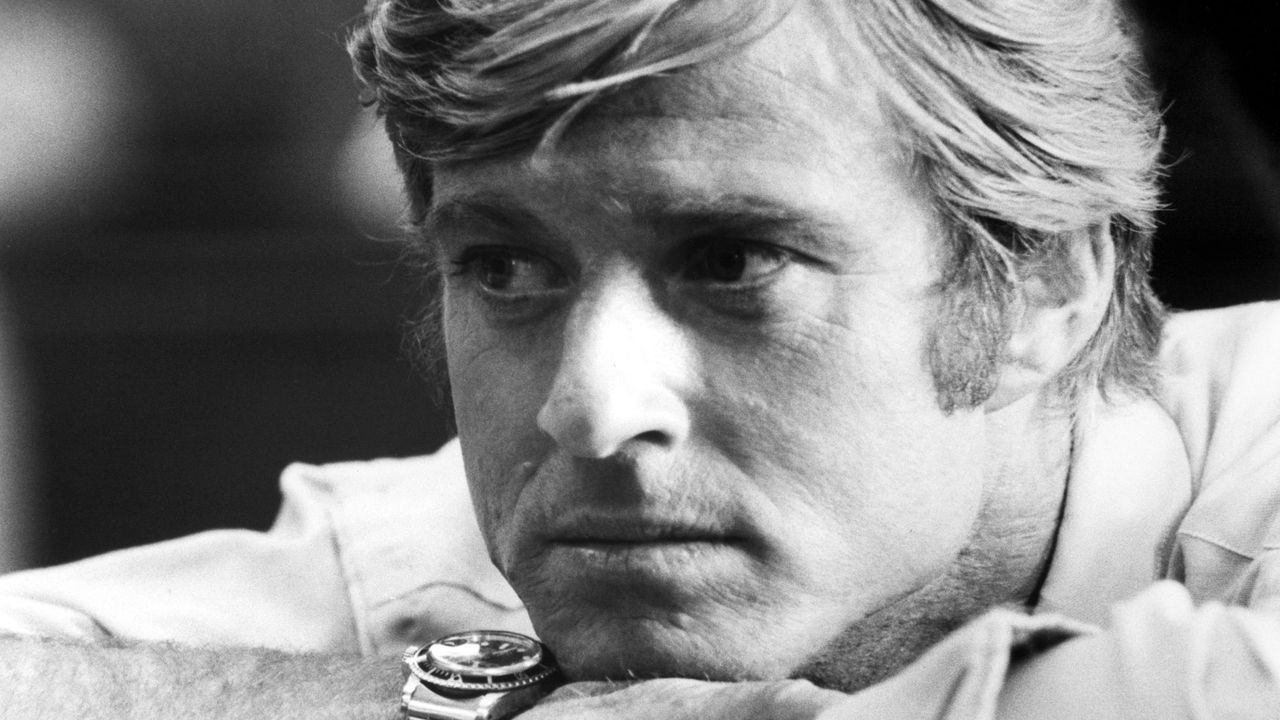Robert Redford was hard to see, which is not the same thing as hard to look at. It was quite the opposite. He was blessed by God, born on third base, a 20th century white heterosexual Santa Monica-born man with dirty blonde hair and perfect bone structure, tall and fit without looking like he’d ever had to step inside a gym. He was eternally boyish and hot, a guy who didn’t need a million dollars to fuck your wife, but might offer because he had it, and because he was a consummate gentleman. People who otherwise didn’t agree on much all saw him the same way—alongside the bald eagle, the baseball diamond, and the smoke-filled American newsroom, as an avatar of our country, of the best of us. What was commonly misunderstood about that visage was what lay behind the eyes, a sadness inaccessible to us because it was a need that was inaccessible to him. It was a kind of hunger, an eternal searching, a restlessness, a curiosity, an uncertainty that did define an America—just not this one.
He emerges as an above-the-title movie star in full as Hollywood undergoes a countercultural revolution, and arguably becomes the poster boy for the way this shift in how we make and think about movies impacted the star system. Roy Scheider and Dustin Hoffman and De Niro and Pacino and Keitel and Dennis Hopper made sense as representatives of a “New Hollywood” because they didn’t look like movie stars as we once understood the term. But If there was ever someone born to have a sheriff’s gold star slapped on his vest, to play a tragic hero soldier or a knight in shining armor to a damsel in distress, it was Redford, who was even hotter than all the matinee idols that came before him (the ones not named Paul Newman, anyway.) Redford figured out how to leverage his stardom, how to translate it to a New Hollywood, how to present himself on screen, and did so as young men enmeshed in vast conspiracies, Long Island playboys in pursuit of the American Dream, stoic outlaws.
These films, with Redford at their center—Butch Cassidy and the Sundance Kid, The Candidate, The Natural, and All The Presidents Men, among many others—represented a kind of new American fairytale, one that subverted the expectation of what a conventional hero is, how he behaves, what he values, and the morality of the world around him. They are the bedrock of a “new” liberalism that emerged with politicians like Hubert Humphrey, George McGovern, and Jimmy Carter, a short-lived rebuke to Nixon and Vietnam and the status-quo of imperialism and conservatism the politician and the war represented (before the 80s and Reagan and the early stages of late capitalism wiped all that away.)
Redford looked like Superman but never played him, opting instead for characters who could’ve rested on their good looks and alien charisma but didn’t, couldn’t, were possessed by the imperative to question their insane privilege and demand more from themselves and their country. His taste as a filmmaker reflected this Boomer idealism and his humanist activism. He supported conservation, social justice, government programs, and the dignity of all people. He made morality plays, explored the American family, the integrity of the individual, and the poetics of a golf course at night. Before there was the cringey cliche of The Hollywood Liberal, there was Robert Redford, who set the tone and politics for several generations of Hollywood and could never be accused of approaching any project, be it a non-profit or a film, with anything less than fearless sincerity.
That sincerity could be treacly and heavy handed, but only contributed to the idea of Redford as a true believer, his last name an adjective that described a specific, increasingly remote and antiquated utopian landscape painting of grassroots political American dissent. As he got older, directors were wise to seize on this image and subvert it. It’s why he could play such an effective morally flimsy playboy, a corrupt politician, a burnt out spy, a series of old men with guns adrift at sea—what could be more surprising, more crushing, than Robert Redford committing sin, or giving up hope?

